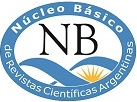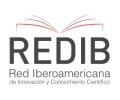Estimativa da covariância ICP para a localização de um robô diferencial usando Odometria e varredura a laser
DOI:
https://doi.org/10.33414/rtyc.37.134-145.2020Palavras-chave:
Localização, ICP, CovariânciaResumo
Neste trabalho apresentamos um método probabilístico para resolver o problema da localização de um robô diferencial. O Extended Kalman Filter (EKF) é usado para mesclar as informações obtidas pelos registros de medição a laser pelo ICP (IterativeClosest Point) com as informações de odometria fornecidas pelos codificadores. Para usar o EKF é necessário estimar a covariância de cada fonte de informação, porém o algoritmo ICP não retorna a covariância associada. Este artigo descreve uma maneira de calcular essa covariância. Os resultados obtidos mostram que o método de fusão de sensores resulta em uma estimativa mais precisa da postura do robô em relação às estimativas que poderiam ser obtidas por odometria e ICP individualmente.



















